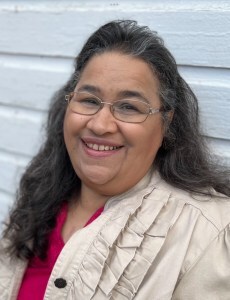Guest Post: Fourths of July
“In Our Own Words”
Fourths of July
By Cynthia W. Connell
Today, as an Indian,
On these Fourths of July,
In gesture of atonement
You choose me to pray.
In benediction I bow,
Not to hallow your crimes,
Or tender a blessing
Upon all that you took.
Continents embezzled,
Identities despoiled,
To purify your oppression
No gratitude is proffered.
For cliffs, sloping seaward,
Breached by ceaseless tides,
And wagon rutted trailways
I tender no tokens of grace.
In this moment, closing eyes,
To all that you have done,
A combined hush settles
Suggestive of unity.
“Help us remember, Great Lord,
All that thou hast given
Purify this bloodied ground
Shedding each despairing drop.
Untie the bindings, Kind Lord,
Compressing breathless lungs
Constricting anguished hearts
Denying our aching sobs.
Unblind captive eyes, Oh Lord,
To thy glorious sacred light
Heal our sightlessness
Giving mercy filled vision.
Bring your holiness, Dear Lord,
Imbuing with power
To reanimate our souls
Scouring clean faithless pasts.
Sanctify us, Mighty Lord,
Sunder each stone like heart
Untangle twisted paths
Leading us to straightness.
Lord, creator of us all,
Raise the broken rubble
Mold from us mountains
Abiding in beauty.
Amen.”
Year after year I have watched a pattern of behavior emerge among my local community of Latter-day Saints. It is to invite the most convenient Native American to offer either the opening or closing prayer for our Sacrament Meetings on or around both the 4th and the 24th of July.
In an attempt to make everyone feel included, ward leaders fail to understand the complex emotions that this simple request creates among those of us still suffering from the effects of colonization.
Such efforts at inclusion are not the kindness they are thought to be, but rather, are opportunities for the dominant culture to receive a confirmation that all the deprivations of the past are now long forgotten and forgiven. Nothing could be further from the truth.
Many Indigenous members of the Church are not treated in the same way as their White counterparts. We live on the same ground, but don’t have the privilege to experience the same freedoms.
I have been in situations of being denied access to medical care based solely on my racial identification. It is legal in America to require a Native American to present a pedigree chart to a receptionist when seeking to see a physician. It is legal in America to turn away a sick person from a public health clinic if they self-identify as Native American. I have experienced these things.
My skin, hair and eyes are brown. After 9-11, the documentation for flying became much more stringent and I worried that my passport would be flagged because it says my race is White. I decided to call the Records office for the state where I was born and was informed that a Tribal Chief needed to be in attendance at my birth and testify, on paper, that I was Native American. Because my mother was primarily of European descent, I can be denied access to basic services because my father wasn’t.
Recently I attended a gathering of Latter-day Saints where many in there proudly self-identified as descendants of Pocahontas. What they don’t realize is that the same Virginia government official who gave the descendants of White colonial landowners the right to recognize themselves as Indians, required that all actual Indigenous babies have their birth records erased. History calls this a “Paper Genocide.” It means the literal erasing of a people’s history from public record. My people’s history.
When I attend my local Ward, I am seen as a Native American, an Indian, a Lamanite, a descendent of the Book of Mormon peoples, not a descendant of Book of Mormon peoples, a blessing, a curse, but hardly ever as just me.
When someone asks that I give the prayer on these Fourths of July, they probably think I will be grateful, but I’m not. I can’t be honest as I approach the pulpit. I want to pray to have the same kind of freedoms that others in the congregation experience. I want to pray for freedom from prejudice. I want to pray for freedom of movement. I want to pray to be me. But what others want is the freedom to not feel uncomfortable.
Because I don’t have freedom, I can’t give others the freedom from conscience they seek.
 Cynthia W. Connell is an award-winning writer of creative non-fiction and poetry. Her writing often reflects her experience of being a multicultural member of the Church of Jesus Christ of Latter-day Saints. She lives in Springville, Utah.
Cynthia W. Connell is an award-winning writer of creative non-fiction and poetry. Her writing often reflects her experience of being a multicultural member of the Church of Jesus Christ of Latter-day Saints. She lives in Springville, Utah.



